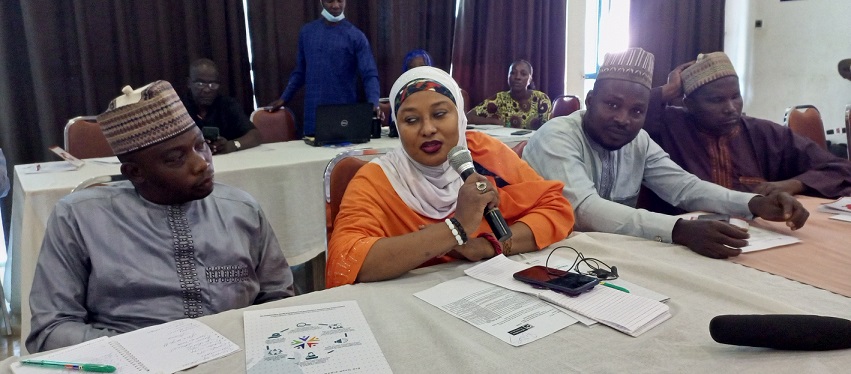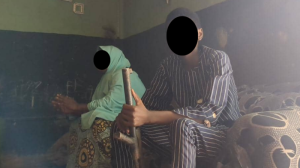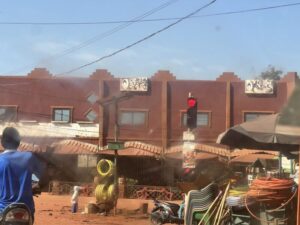By Idris Abubakar
Stallion Times Media Services trained 40 journalists on disability reporting in the media on Thursday in Kano.
One of the resource persons, the Advocacy and Communication Officer, Expanding Social Protection for Inclusive Development (ESPID) – Action Against Hunger, Richard Musa in his presentation on the Overview of Persons with Disability Law in Kano: Opportunities and Challenges said:

“The amended Kano State Disability Bill when passed into law and implemented according to the provisions of the framework would go a long way in bridging the gap between the society and the most marginalized groups.
“The social contract between government and the citizens which have since been severed can be repaired through the law.
“So, we cannot afford to miss this golden opportunity to make things right as far as having an inclusive society is concerned.”
He added that the bill has already been approved by the State Executive Council and transmitted to the State House of Assembly.
Earlier, in his brief remarks, the Kano State Council Chairman of the Nigeria Union of Journalists, Comrade Abbas Ibrahim admonished journalists to be professional in the discharge of their duties.
Comrade Ibrahim called on media practitioners to broaden their horizon through entrepreneurship and development journalism for public interest.
He then thanked Stallion Times for choosing the topic “Disability reporting in the media,” saying, there could be no better time for the training because of its importance and the efforts to have the amended Kano Disability Bill signed into law.
The Editor-in-Chief, Stallion Times, Isiyaku Ahmed said the training was necessary because of the common and negative stereotypes for persons with disabilities which have penetrated the public, media, and the governance eco-system.
He said journalists have an important role to play in changing such negative mindset, increase the representation of PwDs, and reinforce positive thinking rather than portray them in stigmatizing ways, as objects of pity, or as mere data.
Ahmed encouraged participants to keep the discussion around PwD alive and step down the knowledge gained at the workshop to colleagues in the industry.
 The lead consultant, Mainasara Yakubu Kurfi, Ph.D. of the Department of Mass Communication, Bayero University, Kano took participants through understanding, portrayal, and reporting issues of PwDs.
The lead consultant, Mainasara Yakubu Kurfi, Ph.D. of the Department of Mass Communication, Bayero University, Kano took participants through understanding, portrayal, and reporting issues of PwDs.
He said PwDs want and can contribute to national development, but their full participation will depend on the removal of all barriers such as changing the narratives that depict PwDs as sad, passive, and dependent with those showing them dignity, pride, capable and independent individuals.
He urged journalists to increase awareness of the issues and challenges surrounding disabilities by using appropriate terminologies.
“Many PwDs have demonstrated that with the right opportunities and adjustment, where required, to a job or the work environment. If reported properly by the media, PwDs can make valuable contributions to all aspects of human endeavor,” he added.
The training had in attendance members from Civil Society Organizations, broadcast, print, and online media outfits from across the state.
Source: Stallion Times



